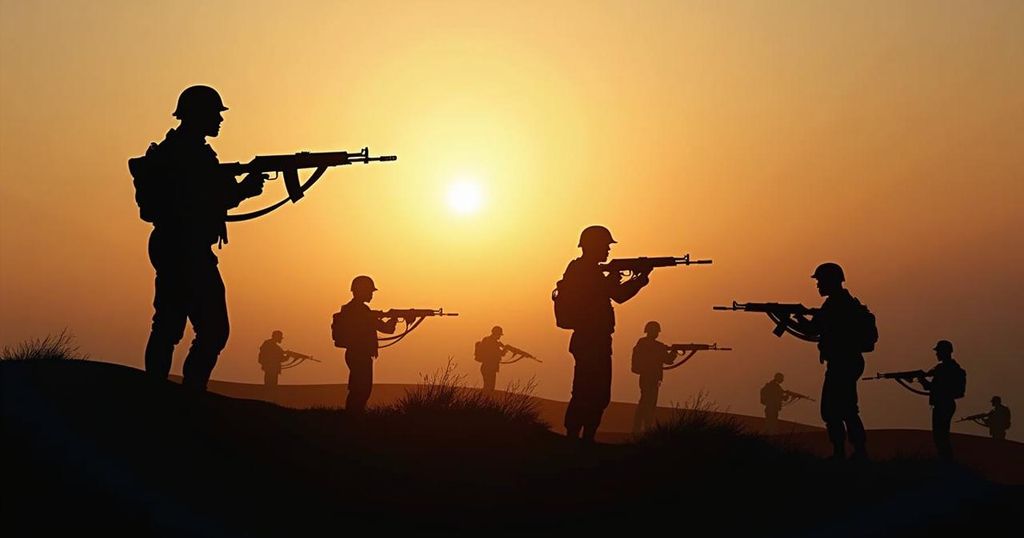Iran Declines to Send Forces to Lebanon or Gaza Amid Israeli Strikes
Iran has stated it will not send military forces to Lebanon or Gaza to confront Israel, asserting that local forces can defend themselves. This comes amid intensifying Israeli airstrikes targeting Iran-aligned groups. Foreign ministry spokesman Nasser Kanani emphasized Iran’s confidence in the abilities of its allies while warning of repercussions for Israel’s actions.
Iran has declared that it will not send military forces to Lebanon or Gaza in response to the escalating conflict with Israel. This declaration was made by the foreign ministry of Iran on Monday, as Israeli airstrikes increasingly target its regional allies. Foreign ministry spokesman Nasser Kanani stated, “There is no need to send extra or volunteer forces of the Islamic Republic of Iran,” asserting that Lebanese forces and fighters in Palestinian territories possess sufficient capability to defend themselves. In recent developments, Israel has intensified its airstrike campaign, particularly against entities aligned with Iran, known collectively as the “axis of resistance.” This network includes militant groups operating in Lebanon, Syria, Yemen, and Iraq. Following an Israeli operation in Beirut that resulted in the death of Hassan Nasrallah, the leader of Hezbollah—a group significantly backed by Iran—Kanani remarked, “We have not received any request in this regard from any side, on the contrary, we are informed and are sure that they do not need the help of our forces.” Despite this, Kanani warned that Israel would face consequences for its actions against Iran and its affiliated forces. He emphasized that Israel “will not remain without reprimand and punishment for the crimes it has committed against the Iranian people, military personnel and the resistance forces.” Additionally, Iranian President Masoud Pezeshkian recently visited Hezbollah’s office in Tehran to pay respects to Nasrallah. Furthermore, Supreme Leader Ali Khamenei has pledged that Nasrallah’s legacy will not be forgotten, and First Vice President Mohammad Reza Aref indicated that his death could lead to significant repercussions for Israel. Iran also expressed its intention to avenge the death of Abbas Nilforoushan, a high-ranking commander of the Quds Force of the Islamic Revolutionary Guard Corps (IRGC), who was killed alongside Nasrallah. Reports indicated that over twenty Hezbollah members were also killed in the Israeli strike that targeted Nasrallah. The political fallout and military strategies on both sides continue to evolve amidst this volatile situation.
The context of Iran’s refusal to send forces to Lebanon or Gaza arises from the ongoing tensions between Israel and Iranian-backed militant factions in the Middle East. Iran has historically supported groups like Hezbollah in Lebanon and various factions in Gaza as part of its broader strategy to counter Israeli influence in the region. Recently, Israel has escalated its military operations against these groups, claiming a need to address threats posed by their actions. The ongoing conflict underscores regional dynamics where issues of sovereignty, military response, and retaliatory actions are in constant flux, influencing the positions of key players such as Iran, Syria, and Hezbollah.
In conclusion, Iran has reaffirmed its stance against deploying forces to Lebanon or Gaza in the face of Israeli aggression, citing the self-sufficiency of regional allies. While asserting that its allies are capable of defending themselves, Iran has also issued warnings regarding potential repercussions for Israel’s actions. The situation remains precarious, with both Iranian officials and Hezbollah promising to respond to the recent escalations.
Original Source: english.alarabiya.net




Post Comment